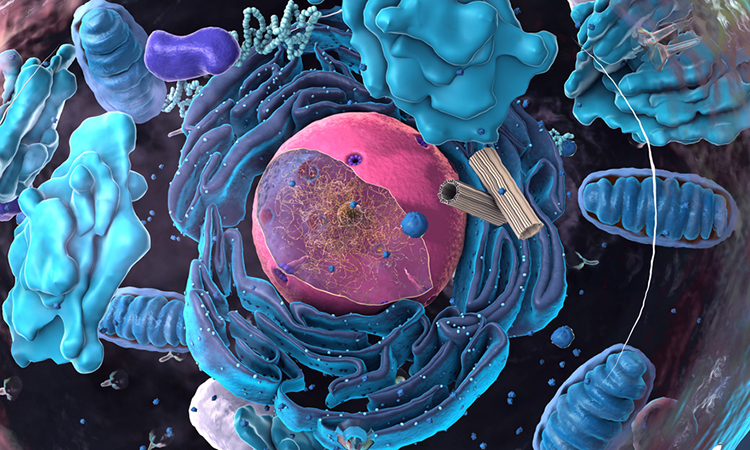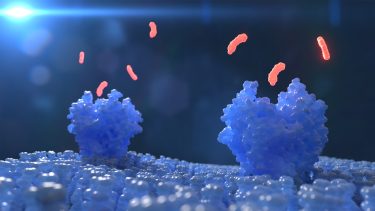Condensate biology: advancing drug discovery for complex diseases
Posted: 13 July 2023 | Izzy Wood (Drug Target Review) | No comments yet
In this interview with Drug Target Review’s Izzy Wood and Dr Isaac Klein, Chief Scientific Officer at Dewpoint Therapeutics, discuss the innovative potential of condensate biology in revolutionising drug discovery. By targeting disease-driving condensates, Dewpoint’s research pushes boundaries by offering new hope for tackling diseases like ALS and colorectal cancer.


Drug discovery is a complex and vital field that continually seeks to identify new therapeutic targets and develop effective treatments. In recent years, a novel approach known as condensate biology has emerged, revolutionising the way researchers think about drug discovery and development. Dewpoint Therapeutics, a platform drug discovery company founded in 2018, has been at the forefront of this exciting field. In this article, we will delve into the world of condensate biology and explore the groundbreaking research projects undertaken to discover the potential they hold for diseases such as amyotrophic lateral sclerosis (ALS) and colorectal cancer.
Dr Isaac Klein, Chief Scientific Officer at Dewpoint, brings a wealth of knowledge and expertise to the field of drug discovery. Trained as a physician scientist, he obtained his MD/PhD from Cornell Rockefeller and Sloan Kettering, specialising in Immunology, Genetics, and Cancer Biology. He now leads research and development (R&D) at Dewpoint.
Dewpoint has made significant strides in the field of drug discovery by leveraging the concept of condensates. These condensates are membrane-less microscopic structures, formed by proteins and nucleic acids and control key biological processes. Dewpoint’s breakthrough was the realisation that certain condensates are associated with human diseases. The company developed methods to identify disease-driving condensates, model them, and create systems for effective drug discovery targeting these condensates.
The aim is to establish condensate biology as a fundamental branch of cell biology – “cell biology 2.0”
Klein notes the importance of Dewpoint’s disease-agnostic approach. The underlying biology and processes upon which the company was founded have broad applicability across various human disease areas. By capitalising on condensate biology, Dewpoint seeks to tackle diseases and targets that have previously lacked sufficient understanding for effective drug discovery. This approach opens up new possibilities for drug development and offers a fresh perspective on addressing previously challenging conditions like ALS, colorectal cancer and ovarian cancer. Dewpoint addresses diseases that lacked comprehensive biological understanding, allowing for more meaningful and logical drug discovery efforts. By embracing the potential of condensates, Dewpoint is pushing the boundaries of drug discovery and offering promising prospects for improving human health.
Disease research
Pushing back the boundaries of drug discovery, Klein outlines the significant progress in understanding and targeting diseases like ALS and colorectal cancer.
In the case of ALS, research in the mid to late-2010s shed light on the core biological process driving the disease, which was previously poorly understood. By modulating the condensate at the heart of ALS, Dewpoint discovered molecules that had profound physiological effects, highlighting the potential of targeting condensates in complex diseases.


Similarly, in their colorectal cancer programme, Dewpoint explored historically undruggable targets. They found that although the targets themselves may not be easily druggable due to their disordered nature, their ability to condense can be modulated using small molecules. By focusing on molecules that modulate the condensate formation, they identified tractable chemical matter that specifically impacted the target of interest. This breakthrough revealed new possibilities for hitting previously undruggable targets through innovative approaches.
The identification and feasibility assessment of potential targets rely heavily on human genetics. Dewpoint uses human genetics to nominate targets with strong disease genetics and that exhibit the characteristics of condensate formation. By combining this knowledge with a deep understanding of how proteins condense, researchers can pursue high value condensate targets driving various diseases with high unmet need.
Safety and efficacy
Regarding drug efficacy and safety evaluation, according to Klein, disease-relevant models are created of the nominated condensates. These models reflect the disease context and include relevant components and modifications observed in the disease. By studying the impact of small molecules on these disease-relevant condensates, the aim is to find molecules that effectively modulate the condensates and restore cell health. To ensure specificity and minimise toxicity, Dewpoint has developed the condensate painting platform, which monitors the activity of small molecules against key condensates governing normal cell function.


When it comes to challenges like resistance and efficacy, Klein explains that he has not encountered significant issues with lack of efficacy so far. The disease relevance of their models and the profound impact of condensate modulation on physiological parameters contribute to the efficacy of their small molecules. However, resistance is a challenge that is just starting to be addressed as the condensate-specific molecules progress into preclinical development.
In terms of patents and regulatory aspects, Dewpoint’s approach to identifying compounds through condensate modulation and their novel mechanisms of action has allowed them to navigate the patent landscape with relative ease. As for regulatory considerations, Klein anticipates engaging in discussions with regulators to address novel aspects such as mechanism, toxicology, and dosing regimens.
Klein highlights the reliance on various technologies to advance Dewpoint’s research. The deep understanding of the biophysical and chemical parameters governing condensate formation involves employing machine learning and artificial intelligence. High-content imaging, combined with image analysis techniques, allows them to observe and analyse condensates in disease-relevant systems, enabling the selection and development of the most promising drugs.
Next steps
Looking ahead, Klein envisions a future where the fundamental biological principles of phase separation and condensate formation are widely recognised and applied. He believes that condensates regulate numerous cellular processes and are dysregulated in various diseases. With the potential to impact diverse areas of science and medicine, the aim is to establish condensate biology as a fundamental branch of cell biology – “cell biology 2.0”.


As a physician-scientist and medical oncologist, being a healer is at Isaac’s core – his driving purpose is to improve lives through science. Throughout his career, Isaac has sought to deploy novel biology and technology to better understand human disease and guide therapeutic development. He has extensively studied the intersection of condensate science, cell biology and pathophysiology with the goal of unlocking the potential of new science to deliver life-changing medicines for patients.
Joining Dewpoint as Chief Scientific Officer gave Isaac the opportunity of a lifetime – to realise his aspiration of shepherding a scientific concept from the laboratory bench to the patient’s bedside. He is energised by the smart, creative and driven team members he collaborates with each day to uncover nature’s mysteries and develop technologies to solve the seemingly unsolvable. Isaac lives the Dewpoint values by leading in a way that encourages inclusion of people and ideas to support disruptive innovative, imagination and transformative solutions that impact people and patients.
Prior to joining Dewpoint, Isaac was on the faculty at the Dana Farber Cancer Institute and Harvard Medical School, as well as a scientist at the Whitehead Institute of the Massachusetts Institute of Technology. He was an undergraduate at Cornell University in the Department of Biological and Agricultural Engineering. He holds a PhD in Biology from The Rockefeller University and an MD from Weill Cornell Medical College. He trained in Internal Medicine at the Brigham and Women’s Hospital of Harvard Medical School, and in Medical Oncology at the Dana-Farber Cancer Institute and Massachusetts General Hospital. In 2022, Isaac was named one of Endpoints News 20 under 40 in Biopharma.
Outside of work, Isaac can be found spending time with his family, including his two sons and two yellow labradors. He also enjoys working on home renovation projects, traveling, and cooking.
Related topics
Biologics, Disease Research, Drug Discovery, Drug Discovery Processes, Small Molecules
Related conditions
Amyotrophic Lateral Sclerosis (ALS), Colorectal cancer, Ovarian cancer
Related organisations
Dewpoint Therapeutics
Related people
Dr Isaac Klein (Dewpoint)








